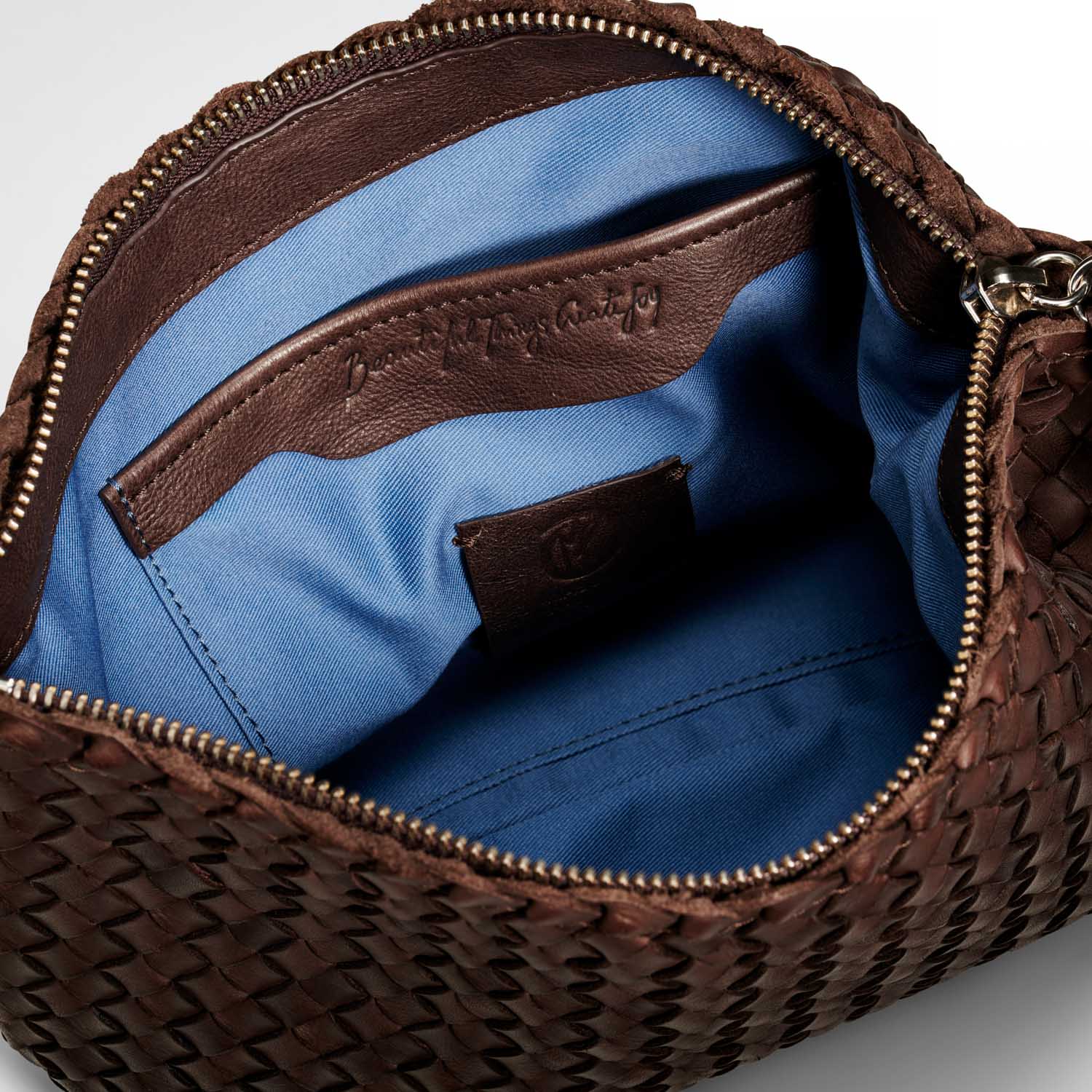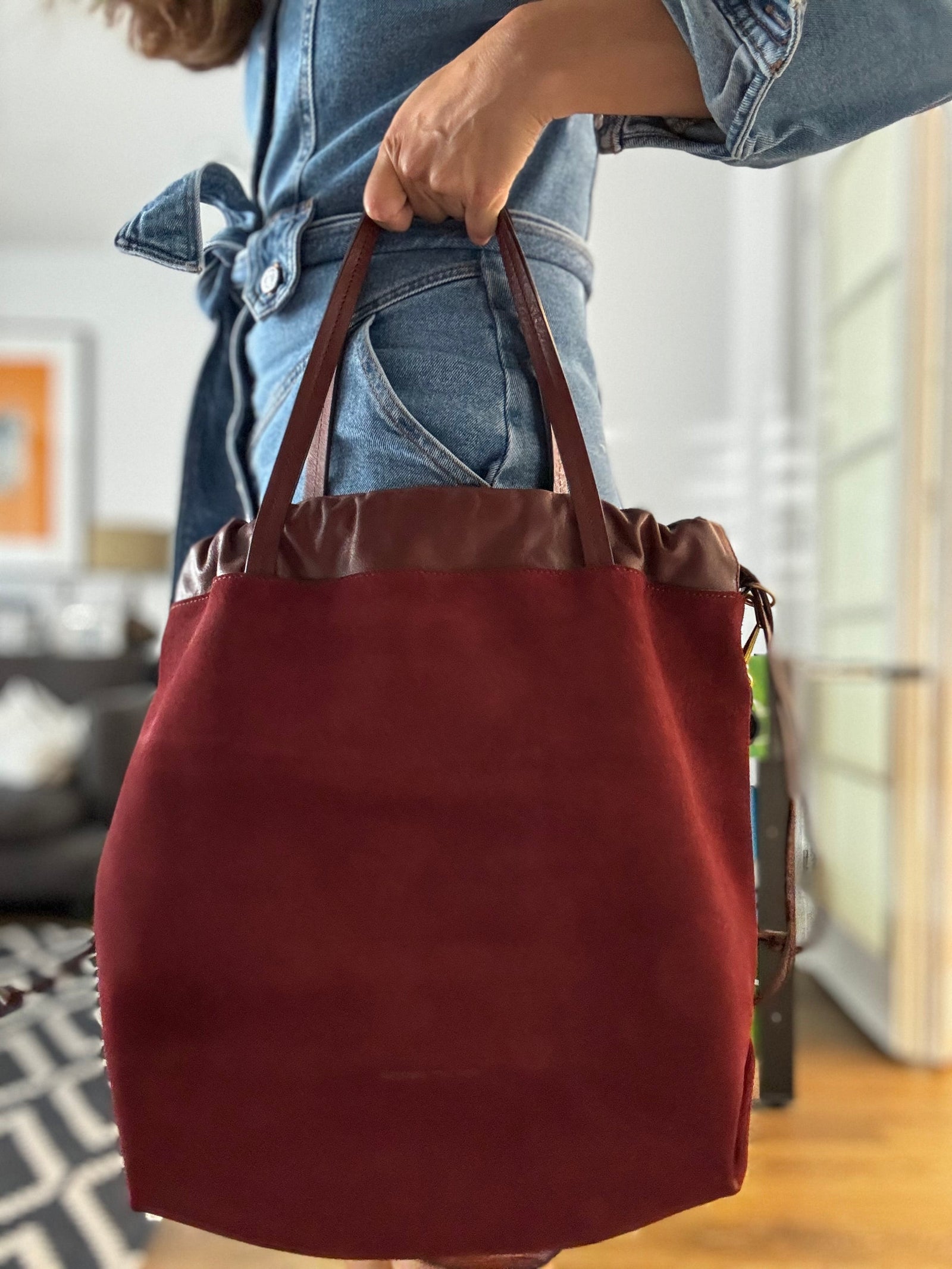Reed diffusers can be a simple and luxurious way to enliven your space with beautiful and refreshing fragrance. But are they always safe to use?
The answer depends on your circumstances. While reed diffusers can be a safe home fragrance alternative when used appropriately, there are some situations when it’s safest not to use any fragrance at all, particularly if you share your space with dogs, cats, or children.
Read on to learn how to use your reed diffuser safely and precautions you can take to make them safer, and find out who should avoid them entirely.
What are Reed Diffusers?
A reed diffuser is a bottle with a long, narrow neck that is filled with liquid air freshener, into which long reeds, or sticks, are placed. These reeds absorb the scented liquid and gently diffuse its fragrance into the surrounding air. They’re a popular alternative to scented candles, as they don’t carry the fire risk of an open flame, and they are longer lasting.
Tizzy Loves exclusively stocksCulti Milano reed diffusers, which feature thick glass bottles with a wood cap and bamboo rattan sticks. The scented liquid is a premium blend of alcohol and natural oil fragrances.
Are Reed Diffusers Safe for Pets?
If you’re one of the many Brits who lives with a dog or cat, you might be wondering whether a reed diffuser is safe for your home. Unfortunately for pet owners, it’s safest to avoid using any diffusers around your furry companions. They pose a risk for cats and dogs as a spilling hazard, and because fragrances are often toxic to animals.
Even if you choose an all-natural, high-quality essential oil reed diffuser, many essential oils are inherently toxic to cats and dogs. These include common oils, like cinnamon, clove, citrus and tea tree oil, along with many more.
Some pet owners do choose to use certain essential oils around their animals, and do their research to avoid the dangerous ones. But with many diffusers simply listing ‘fragrances’ on their ingredients list, it’s hard to be sure that what you’re diffusing will be safe for your pet. Plus, your pet’s sense of smell is extremely sensitive, so what smells pleasant to you could be overwhelming for them, even if it is safe.
If you’re a pet owner and you do still want to use a diffuser, use it in a room that your dog or cat can’t enter, and ventilate the space very well after each use. Between uses, be sure to store your diffuser well out of reach of your pets, with the lid firmly sealed to avoid any curious cats or dogs getting into the liquid.
If you suspect your pet has ingested oil from your reed diffuser, call the UK Animal Poisons Line.
Are Reed Diffusers Safe for Babies?
Reed diffusers may not be safe for babies or young children, so it’s best to avoid using them if you’re a parent or caregiver to little ones - or making sure that they are completely out of reach from babies and children.
Many mass-market reed diffusers are full of synthetic chemicals, which are of course not recommended for use around developing children. But while you might have heard that essential oils are a safe alternative to synthetic fragrances, they can also be toxic for babies and infants whose respiratory systems are still developing. So, the safest choice is to avoid fragrances entirely.
If your baby has started moving around or getting adventurous, there is also the risk that they could find and consume the liquid in your diffuser, which can cause serious harm. Even skin contact can cause skin and eye irritation and respiratory distress.
Once your child is old enough to follow safety instructions, you might choose to introduce a reed diffuser into your home—choosing a natural, high-quality fragrance, of course. Explain to your child the dangers of touching or ingesting the liquid, and keep the diffuser out of their reach to avoid accidental spills. Use the diffuser in a common area rather than your kid’s bedroom, and never leave your child unsupervised with it.
If you suspect your child has ingested liquid from a reed diffuser, call 999 or thepoisons helpline.
Are Reed Diffusers Safe During Pregnancy?
While you’re pregnant, your developing baby is extremely sensitive to whatever you take in from your environment, including fragrances. If you do decide to use a reed diffuser while pregnant, avoid the synthetic fragrances used in many mass-market products and ensure you research thoroughly to determine which essential oils are safe for you and your baby. Remember, natural doesn’t mean harmless!
If you do decide to use essential oils during your pregnancy, inhalation—that is, through a reed diffuser—is generally considered to be a safer method than application to skin or digestion. That said, there is still debate about whether inhaling essential oils can put your unborn baby at risk, so always speak to your doctor before introducing essential oils into your routine.
The type of oil you diffuse also matters. Many essential oils should be avoided during pregnancy, either because they are known to cause harm or because their effects on unborn babies are not fully understood. Potentially dangerous oils include aniseed, basil, cinnamon, fennel, wintergreen, and many more.
Certain essential oils are generally considered safe for non-topical use when pregnant, when diffused in appropriate doses. These include peppermint oil, which may assist with nausea, and lavender oil, which may assist with sleep. Again, check with your doctor before introducing any new fragrances into your pregnancy routine.
How to Use Reed Diffusers Safely
If you’re not pregnant, and don’t have young children, babies or pets in the house, reed diffusers can be an excellent flame-free home fragrance alternative to oil burners and candles.
There are some basic safety precautions you can take to ensure that you’re using your reed diffuser safely in your home. Firstly, choose a high-quality diffuser that prioritises non-toxic ingredients and natural oils over synthetic concoctions. Our luxurious Culti Milano range is a good place to start.
Before you first use your diffuser, check the packaging for important information, instructions or safety warnings. You should also check the ingredient list, and do your own research to make sure you’re happy with the essential oils that you’re diffusing into your space.
When choosing where to place your diffuser, be sure to avoid direct sunlight or heat from a heater or radiator, which can degrade the liquid and cause rapid evaporation.
Reed diffusers are generally much safer to use in your bedroom than candles, as they don’t pose a fire risk. Just ensure the room you’re diffusing into is well-ventilated to avoid too much concentration of fragrance. That said, an open, draughty window can risk toppling your diffuser over. Avoid window sills, as well as any other high-traffic areas where you might accidentally knock over your reeds.
If you do have a spill when using your diffuser, wear protective gloves to avoid skin contact with the liquid and clean the affected surfaces as soon as possible with a soft, warm water–soaked cloth to prevent staining.
And a final tip for diffusing into a small room, or if you or someone you share a space with is sensitive to fragrances: try placing fewer reeds into your bottle. This reduces the amount of scent that is diffused around the space, making the fragrance milder.
Common Safety Concerns and Myths
A common misconception about reed diffusers is that they’re all created equal. This could not be further from the truth! The quality of the liquid, as well as the reeds themselves and even the bottle that contains them, varies widely between brands and producers. If health and safety is a priority for you, it’s essential to do your research and ensure that what you’re buying is high-quality.
Another pervasive myth that you’ll often hear in natural home and parenting spaces is that essential oils are a safe, natural alternative to synthetic chemicals. While this is sometimes true, it is not always the case. Natural does not mean harmless! Someone with a peanut allergy will not benefit from a 100% natural jar of peanut butter, and no one wants to brush up against a stinging nettle. Always do your research before introducing a new fragrance into your home, no matter how natural.
And lastly, you may hear from essential oil enthusiasts that the only way to use essential oils effectively is undiluted. Again, this couldn’t be further from the truth! Truly beautiful fragrances that are also long-lasting and safe to inhale almost always require an expert blend of oils and carrier liquid. In fact, using undiluted oils is not advisable unless you really know what you’re doing, as the concentration can pose a health risk.
So, the key takeaway: if you’re after a low-tox, flame-free home fragrance alternative, reed diffusers can be an excellent choice. When used responsibly, they can be one of the safest ways to elevate your space with scent. However, if you have a baby or young child, are pregnant, or live with pets, a reed diffuser may not be right for you, or you may need to take some extra precautions to use it safely.
If you do choose to use a reed diffuser, remember to opt for a product that uses high-quality fragrance. Choose a brand that is transparent and mindful about the provenance of their oils, and steer clear of the generic synthetic products.
Shop our range ofCulti Milano home fragrances here.





Leave a comment (all fields required)